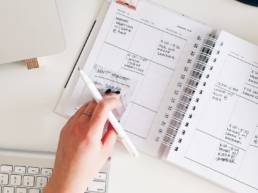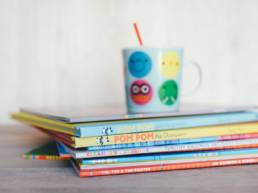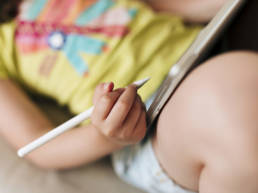The New Temporary Norm
Homeschooling
So, by now, we are all coming to terms with this new ‘Lockdown’ way of life, as this Corona virus sweeps the planet. Working from home, and more so, homeschooling the kids, has become the new reality. I think if we are all being honest with ourselves, none of us are actually prepared for this new reality. After the initial excitement of the change in routine wears off, it finally dawns on us that the kids are going to be inside, at home possibly until the start of the new school year in August. This has the potential to be a real problem if you’re not prepared.
Many of us have had the ‘advantage’ of being table to work from home, either on an ad hoc basis or one or two days a week regularly. I speak from personal experience but if I haven’t planned my week in advance so that I know exactly what I am going to do on that day, I am extremely unproductive (I hope my boss isn’t reading this!). So, imagine how difficult it is going to be for the kids if you don’t forensically plan their day.
〰
As much as we may dislike the rigour of the working day, we must admit that it does have the advantage of squeezing the most productivity out of people. It may seem unnatural that we jump out of beds at the crack of dawn, wolf down a breakfast, have a crowded commute to work with thousands of other people all trying to get into the office by 830. We put in two and half hours of graft before we are allowed to grab a 15-minute coffee break, only to put in another 2 hours before an hour’s lunch break, after which is the final 3 hour stretch, possibly punctuated by a mid-afternoon coffee break.
〰
Efficient Homeschooling
The key to efficient homeschooling for the kids is to try and replicate as much as is possible the normal school day. Kids in the unfamiliar studying surroundings of their own homes will be easily distracted and they will impress you with their multitude of procrastination attempts. Our homes are full of screens, be it TV, tablets or phones. There needs to be a dedicated room in which the kids can study. If there is a TV in that room then this must remain off during the allotted study period (there wouldn’t be a TV on at school during a lesson, would there?)
1. Schedule
Create a realistic schedule. This might mirror the normal school day, with breakfast followed by 15 minutes of play time to wake up the brain cells, but then a block of time devoted to that day’s lesson. Be intentional with the minute in the day and stick to these time blocks. Remember that because there is no travel to and from school, or even between classrooms, that you have to allow space for these physical activities even if it is 10 minutes out of every hour devoted to exercise (a quick game of catch in the garden, hopscotch, skipping… You know what your kids like to do).

1. Schedule
Create a realistic schedule. This might mirror the normal school day, with breakfast followed by 15 minutes of play time to wake up the brain cells, but then a block of time devoted to that day’s lesson. Be intentional with the minute in the day and stick to these time blocks. Remember that because there is no travel to and from school, or even between classrooms, that you have to allow space for these physical activities even if it is 10 minutes out of every hour devoted to exercise (a quick game of catch in the garden, hopscotch, skipping… You know what your kids like to do).

Shop online for our recommendations for help with the day’s lessons.

2. Crafts
Not all learning has to be traditional classroom learning. There must also be Physical Education sessions, which again may just be a game in an open space or a park, observing the 2-meter rules from other people. Also allow for the creative outlets in kids, be it painting, puzzles, Origami exercises.
2. Crafts
Not all learning has to be traditional classroom learning. There must also be Physical Education sessions, which again may just be a game in an open space or a park, observing the 2-meter rules from other people. Also allow for the creative outlets in kids, be it painting, puzzles, Origami exercises.

3. Reading
Reading is also very important for kids. Stock up on a good selection of reading books for the children. Reading a good novel can be a welcome break from ‘learning’ and it helps clear the mind and allows time for knowledge to incubate. Our kids should learn that reading should be fun and can be done for leisure.

3. Reading
Reading is also very important for kids. Stock up on a good selection of reading books for the children. Reading a good novel can be a welcome break from ‘learning’ and it helps clear the mind and allows time for knowledge to incubate. Our kids should learn that reading should be fun and can be done for leisure.

Here are some examples of superb children’s books that can be bought online.

4. Screen Time
There are some superb learning apps, and YouTube videos which may be great for homeschooling. The internet and computer apps can be an incredible medium for teaching. But because of this it does make controlling the kids screen time quite difficult. We are all guilty of this I know, but we mustn’t use our kids’ smart phones and tablets as electronic parenting. Again, block time off in the day when the kids can be playing games or watching their favourite shows and then times when devices can only be used for particular lessons.
4. Screen Time
There are some superb learning apps, and YouTube videos which may be great for homeschooling. The internet and computer apps can be an incredible medium for teaching. But because of this it does make controlling the kids screen time quite difficult. We are all guilty of this I know, but we mustn’t use our kids’ smart phones and tablets as electronic parenting. Again, block time off in the day when the kids can be playing games or watching their favourite shows and then times when devices can only be used for particular lessons.

Homeschooling is never going to fully replace their school experience, so what we are trying to do here is to limit the damage, keep the kids stimulated and maintain a modicum of rigour in the day until the school holidays. Stock up on your reading books, learning material and puzzles for leisure but above all stay safe.
Guest post by Helvetic Institute
























